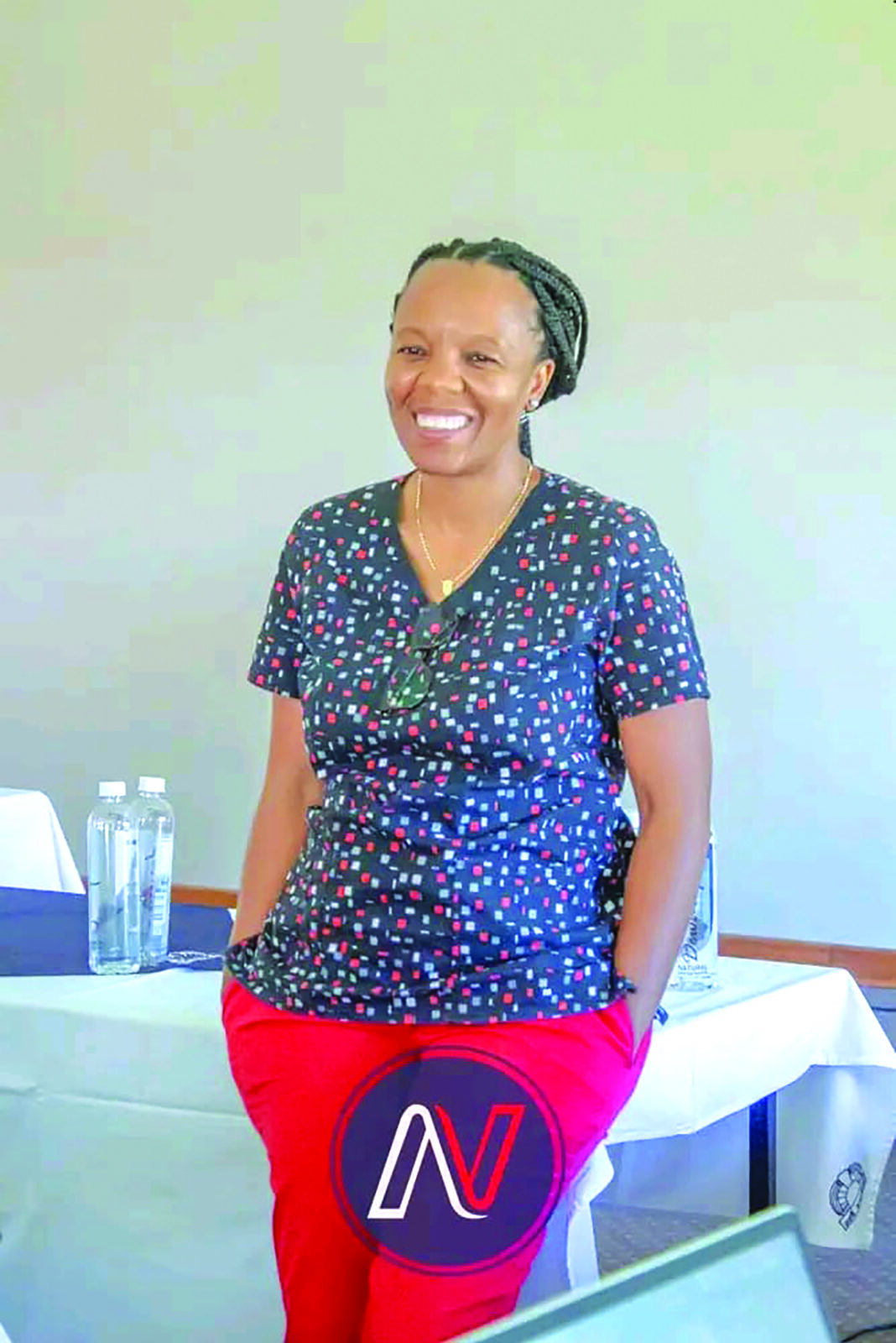Ntsoaki Motaung
In Lesotho’s healthcare landscape, amidst the surging wave of cancer cases, Dr Kabelo Mputsoe stands as a beacon of hope.
Born and bred in the rugged district of Thaba Tseka, Mputsoe’s journey from her humble beginnings to becoming the country’s sole Clinical and Radiation Oncologist is nothing short of inspiring.
Minister of Health, Selibe Mochoboroane, has been vocal about the alarming surge in cancer cases, particularly cervical cancer, which claims far too many lives each year.
According to Mochoboroane, the statistics are grim, with 541 women diagnosed with cervical cancer annually, and a staggering 87 percent succumbing to the disease.
In light of this, the importance of specialists like Mputsoe cannot be overstated.
Mputsoe’s path to oncology began during her medical studies in Malawi, where she returned to Lesotho in 2007, eager to make a difference.
Upon her return from school in 2007, she dove headfirst into patient care, immersing herself in the demanding world of healthcare.
Assigned to the gynaecology ward at Queen II Hospital for her internship, she encountered a stark reality: a surge in cancer cases. “At that time, cancer cases were rampant, dominating our workload,” she recalled.
Her transfer to Mafeteng Hospital in 2009 marked a turning point.
Unsupervised and faced with the stark reality of the country’s cancer crisis, Mputsoe felt a stirring within her.
“Despite being exposed to working with cancer patients more than other diseases, I developed the passion to study about it,” she recounted.
Recognising the urgent need for specialised care, the Ministry of Health selected Mputsoe to pursue further studies in cancer care. With the ministry’s support, she embarked on a journey to enhance her expertise and address the pressing issue of cancer care in Lesotho.
Called upon by the ministry to spearhead efforts in managing non-communicable diseases and constructing a program for cancer care, Mputsoe found herself in a challenging position.
“There was no well-structured program for cancer at that time, and the pressure to provide direction was overwhelming,” she said.
Driven by the need for better solutions, she made a pivotal decision to pursue specialized education in cancer care.
Despite the challenges of being a family woman and returning to school after a prolonged absence, her determination remained unwavering.
Selected as one of three doctors to specialise in cancer care, she embarked on a journey of learning and growth. In 2017, she pursued a specialisation in cancer care at the University of the Witwatersrand in South Africa, with sponsorship from the International Atomic Energy Agency.
Her training in radiation oncology was followed by further studies in clinical oncology in Zambia, culminating in a comprehensive understanding of cancer care.
“When I came back in 2021, I was prepared to do whatever it took for the cancer clinic to be established, even if it meant shedding my doctor’s gown,” Mputsoe recounted.
“The absence of patient files was a stark reminder of the urgent need for specialised care,” she added.
With determination and support from funders, the Senkatana Oncology Clinic was born, transforming a mere building into a beacon of hope for cancer patients.
However, amidst the triumphs, Mputsoe acknowledges the weight of responsibility in her field.
“The most challenging aspect of oncology for me has been restoring hope in the patients I see,” she admitted.
“Regardless of the type of cancer they face, each patient holds onto the hope of being cured. While it is essential to instill hope, honesty about their condition and treatment is paramount,” she added.
Mputsoe revealed that she finds herself in a dichotomy of emotions when delivering news to her patients.
“Breaking the bad news to a patient is incredibly frustrating,” she confessed.
However, she said she finds unparalleled fulfillment when patients return to the clinic in the early stages of cancer, undergo treatment, and ultimately emerge cured.
“Seeing your patient alive and thriving after two years is the most rewarding feeling,” she beamed.
Another proud moment for her is the ability to contribute directly to patient care.
As the Senkatana Oncology Clinic now offers chemotherapy, Mputsoe has the opportunity to administer treatment herself, a testament to the clinic’s growth and impact.
Reflecting on the challenges she faces as the sole oncologist in Lesotho, Mputsoe said: “The primary difficulty lies in the fact that you must create a pathway where none exists, spanning all levels from policy to clinical practice. It requires being the most effective advocate for patients and their needs.”




